Expired Psyllium Husk Powder: Safety, Shelf Life & When to Discard It
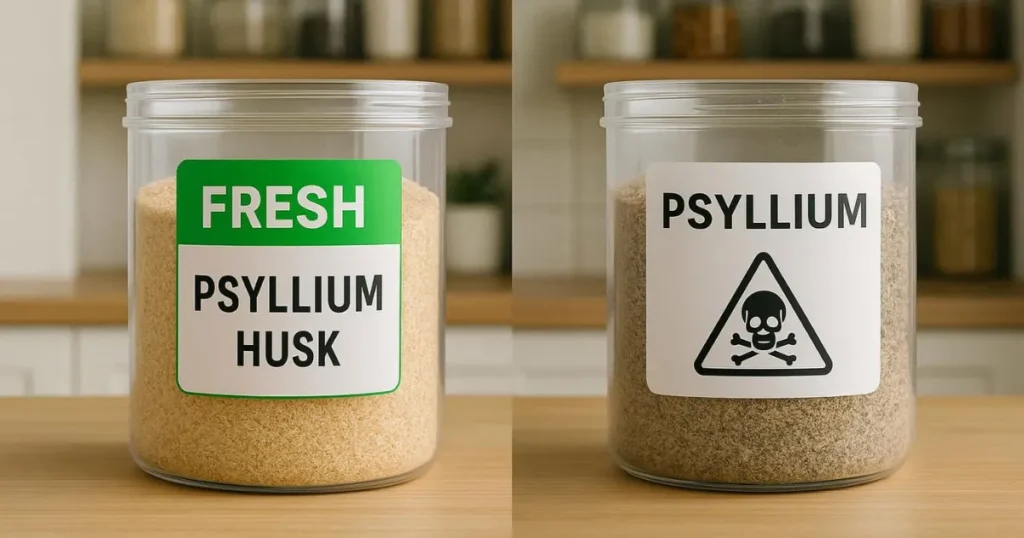
You’re cleaning out your pantry and discover a container of psyllium husk powder tucked away in the back. The expiration date has passed, but the powder looks fine. Can you still use it? Is expired psyllium husk powder safe for consumption, or should it go straight into the trash? These questions are more common than you might think, especially given how slowly many people go through fiber supplements.
Understanding whether expired psyllium husk powder remains effective and safe is crucial for making informed decisions about your health and budget. While some products remain perfectly usable past their printed dates, others deteriorate in ways that impact both safety and effectiveness. This comprehensive guide explores everything you need to know about psyllium shelf life, storage, safety considerations, and how to determine whether your expired psyllium husk powder should stay or go.
What Does the Expiration Date on Psyllium Husk Powder Mean
Expiration dates on psyllium husk powder packages represent the manufacturer’s guarantee of optimal quality, potency, and safety when stored under recommended conditions. These dates don’t necessarily indicate the exact moment when product becomes unsafe or completely ineffective. Instead, they mark the timeframe during which the manufacturer can confidently assure full potency and best quality.
Most psyllium husk powder products carry expiration dates ranging from one to three years from manufacturing date, depending on processing methods, packaging quality, and added ingredients. Pure psyllium husk powder without additives typically has longer shelf life than flavored or formulated products containing additional ingredients that may degrade faster.
The date serves multiple purposes beyond consumer safety. It protects manufacturers legally, helps retailers manage inventory rotation, and provides consumers with reasonable guidance about product freshness. Understanding that expiration dates are conservative estimates rather than absolute deadlines helps you make more nuanced decisions about expired psyllium husk powder.
Different manufacturers use various date formats including “best by,” “use by,” “expiration date,” and “best if used before.” These subtle differences matter. “Best by” dates typically indicate peak quality rather than safety concerns, while “use by” dates suggest more definitive endpoints for consumption.
How Long Does Psyllium Husk Powder Actually Last
When properly stored, psyllium husk powder often remains usable considerably longer than printed expiration dates suggest. The actual shelf life depends heavily on storage conditions, packaging quality, and whether the container has been opened. Unopened containers stored in cool, dry, dark locations can maintain quality for several years beyond expiration dates.
Once opened, psyllium husk powder begins gradual degradation due to exposure to air, moisture, and temperature fluctuations. However, this process happens slowly with pure psyllium. Opened containers typically remain effective for 12-24 months past expiration dates if stored properly, though potency may decrease slightly over time.
The hygroscopic nature of psyllium means it absorbs moisture from the environment, which accelerates breakdown. Humidity is the primary enemy of psyllium shelf life. In dry climates with proper storage, expired psyllium husk powder maintains quality longer than in humid environments where moisture exposure hastens deterioration.
Temperature stability also affects longevity. Consistent cool temperatures preserve psyllium better than fluctuating conditions or heat exposure. Products stored in climate-controlled pantries outlast those kept in garages, outdoor storage, or above stoves where temperature varies significantly.
Pure psyllium husk powder without additives demonstrates remarkable stability compared to products containing flavorings, sweeteners, or other ingredients. These additional components may degrade faster, affecting overall product quality even if the psyllium itself remains viable.
Signs That Expired Psyllium Husk Powder Has Gone Bad
Determining whether expired psyllium husk powder remains usable requires careful inspection beyond simply checking dates. Several telltale signs indicate deterioration that makes product unsuitable for consumption, regardless of how far past the expiration date it is.
Visual changes represent the easiest indicators to spot. Fresh psyllium husk powder appears consistently colored, ranging from light beige to tan depending on variety. Discoloration, dark spots, or unusual color changes suggest contamination or degradation. Any visible mold, which appears as fuzzy growth in various colors, means immediate disposal is necessary.
Clumping provides important clues about moisture exposure. While slight clumping from humidity can sometimes be broken apart, hard, cement-like clumps that don’t break easily indicate significant moisture damage. This moisture creates conditions for bacterial or mold growth even if not immediately visible.
Odor changes signal problems. Fresh psyllium husk powder has minimal smell, perhaps slightly earthy or neutral. Rancid, musty, sour, or otherwise unpleasant odors indicate spoilage. Trust your nose – if it smells wrong, discard it regardless of appearance.
Texture alterations beyond normal clumping warrant concern. If expired psyllium husk powder feels sticky, oily, or has changed consistency dramatically, moisture or contamination has occurred. The powder should remain dry and free-flowing when fresh.
Presence of insects or pest evidence means immediate disposal. Small beetles, weevils, or their larvae sometimes infest stored grain products including psyllium. Any signs of insect activity render the product unusable.
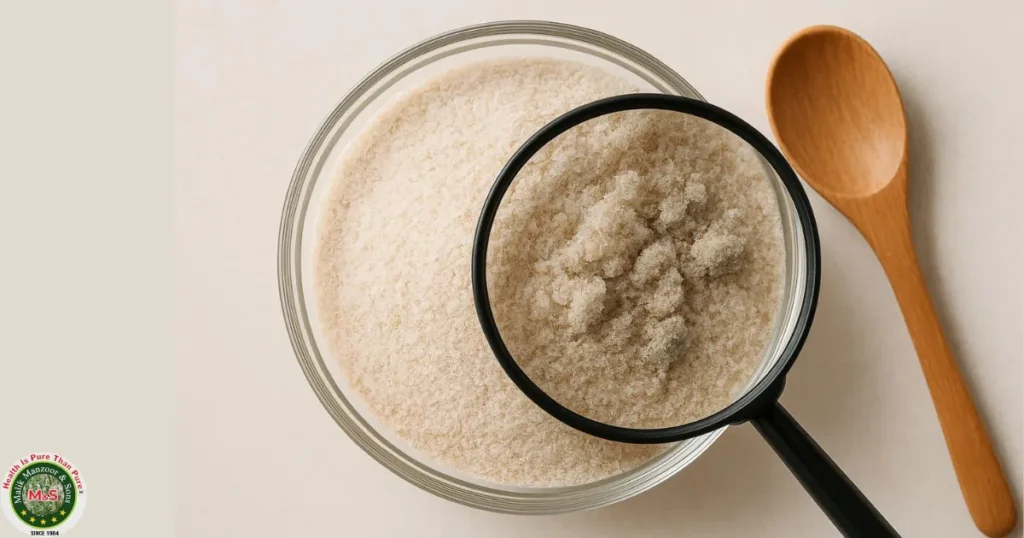
Safety Considerations for Using Expired Psyllium Husk Powder
The primary safety concern with expired psyllium husk powder relates to potential contamination rather than inherent toxicity. Unlike medications that may become dangerous after expiration, properly stored psyllium doesn’t develop harmful compounds as it ages. However, degraded storage conditions can introduce safety risks.
Bacterial contamination becomes possible when moisture enters the container. While dry psyllium doesn’t support bacterial growth, dampness creates favorable conditions for microorganisms. Consuming contaminated expired psyllium husk powder could cause digestive upset or, in rare cases, more serious illness.
Mold presents another safety concern. Some molds produce mycotoxins that can be harmful if consumed. Visible mold requires immediate product disposal, but microscopic mold may exist before becoming visible. This is why proper storage and careful inspection are crucial.
Allergic reactions may intensify with degraded product. While rare, breakdown products from aged psyllium might trigger sensitivities in people who tolerated fresh product without issues. Anyone with known sensitivities should be especially cautious with expired psyllium husk powder.
Reduced effectiveness represents the most common issue rather than acute safety risk. Expired psyllium husk powder may simply not work as well for digestive regularity, cholesterol management, or baking applications. Using ineffective product isn’t necessarily dangerous, but it defeats the purpose of consumption.
People with compromised immune systems, pregnant women, young children, and elderly individuals should exercise extra caution with expired products. For these vulnerable populations, the minimal cost savings rarely justify potential risks, even if those risks are relatively small.
How to Properly Store Psyllium Husk Powder for Maximum Shelf Life
Proper storage dramatically extends psyllium husk powder shelf life, helping you avoid premature expiration and waste. Understanding optimal storage conditions protects your investment and ensures product remains effective longer.
Container choice matters significantly. Transfer psyllium to airtight containers with tight-sealing lids immediately after opening if original packaging isn’t resealable. Glass jars with rubber gasket seals work excellently, as do high-quality plastic containers with secure snap-on lids. Avoid containers that allow air exchange.
Location selection impacts longevity. Store psyllium in cool, dry pantries away from heat sources like ovens, dishwashers, or sunny windows. Ideal storage temperature ranges from 60-75°F with minimal temperature fluctuation. Avoid garages, basements, or outdoor storage where humidity and temperature vary.
Light protection preserves quality. While psyllium doesn’t degrade from light as dramatically as some products, opaque containers or dark storage locations offer additional protection. Keep psyllium away from direct sunlight or bright artificial lighting.
Moisture control represents the single most important storage factor. Never use wet measuring spoons or allow steam from cooking to enter containers. Consider adding food-grade silica gel packets to containers in humid climates for extra moisture protection.
Separate storage from strong-smelling foods prevents odor absorption. While psyllium doesn’t absorb flavors as readily as some products, keeping it away from spices, coffee, or other aromatic items maintains purity.
Rotation practices help ensure freshness. Mark containers with purchase dates and use oldest stock first. This simple habit prevents forgotten containers from expiring before use.
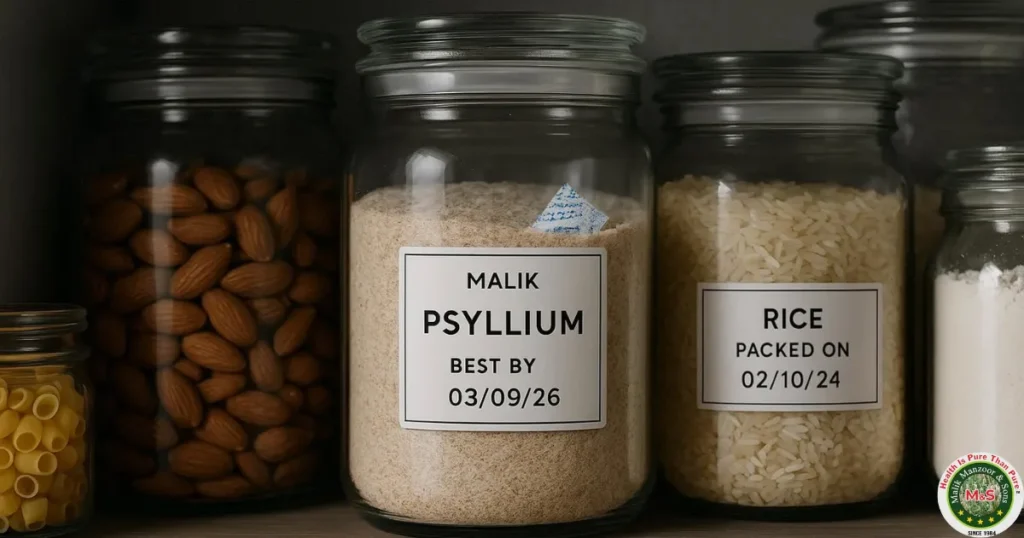
Testing Expired Psyllium Husk Powder for Usability
If your expired psyllium husk powder passes visual, smell, and texture inspection, simple tests can help determine remaining effectiveness before committing to consumption. These evaluations provide practical assessment of whether the product still functions adequately.
The gel test reveals fiber integrity. Mix one teaspoon of expired psyllium husk powder with four ounces of water in a clear glass. Stir thoroughly and wait five minutes. Fresh psyllium forms thick, consistent gel. If the mixture remains watery or forms weak, inconsistent gel, fiber degradation has occurred, indicating significantly reduced effectiveness.
The dissolution test shows particle integrity. Add a small amount of expired psyllium husk powder to water and observe how quickly it incorporates. Fresh psyllium dissolves and disperses readily with stirring. If particles clump excessively or refuse to mix despite vigorous stirring, quality has deteriorated.
Small-scale trial usage provides real-world assessment. If tests suggest expired psyllium husk powder remains viable, try a small amount – half your normal dose – and observe effects. If it provides expected results without adverse reactions, it likely remains usable. Start cautiously and increase gradually if initial trial succeeds.
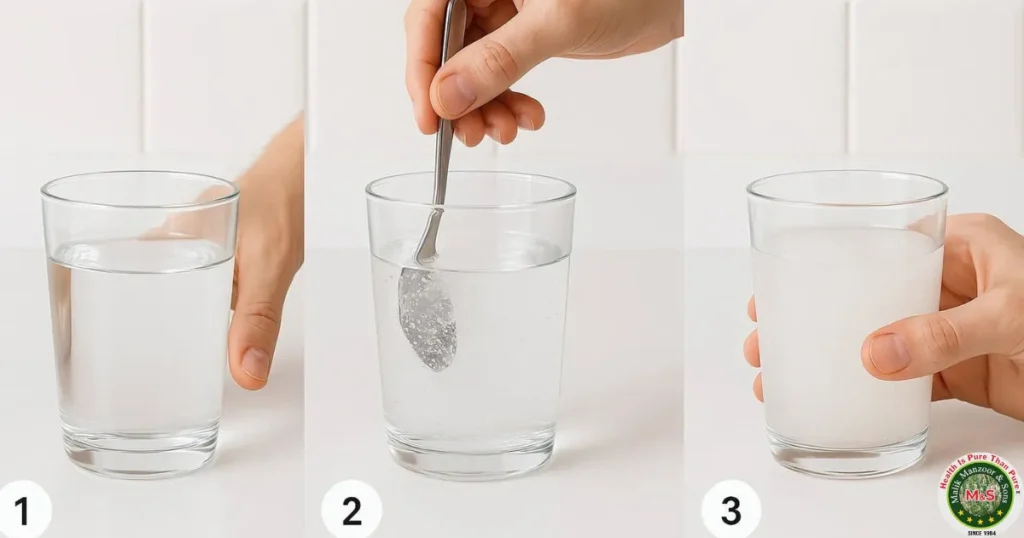
Does Expired Psyllium Husk Powder Lose Potency
Even when expired psyllium husk powder remains safe for consumption, potency degradation represents a legitimate concern. Understanding how effectiveness changes over time helps set realistic expectations if you choose to use expired product.
Fiber content remains relatively stable in properly stored psyllium. The physical structure of soluble fiber doesn’t break down rapidly under good storage conditions. This means expired psyllium husk powder often retains most of its fiber content for years past expiration dates, though some reduction occurs gradually.
Gel-forming capacity may diminish slightly over extended periods. The molecular chains responsible for water absorption and gel formation can break down slowly, reducing the characteristic thickness and consistency that makes psyllium effective. This explains why very old expired psyllium husk powder might not work quite as well for baking or digestive applications.
Binding properties for baking applications degrade more noticeably than basic fiber content. Bakers working with gluten-free recipes may notice expired psyllium husk powder doesn’t provide the same structural integrity or moisture retention as fresh product. This makes it less reliable for demanding baking applications even if it remains acceptable for daily fiber supplementation.
The rate of potency loss accelerates with poor storage. Expired psyllium husk powder stored in ideal conditions might lose 10-20% effectiveness over several years, while poorly stored product could lose significantly more in shorter timeframes.
When to Definitely Discard Expired Psyllium Husk Powder
Certain situations demand immediate disposal of expired psyllium husk powder regardless of appearance or storage history. Recognizing these scenarios protects your health and ensures you’re not wasting time with ineffective product.
Strong, unpleasant, or rancid odors indicate contamination or breakdown that makes product unsuitable. Even if you can’t identify specific problems visually, trust your sense of smell. No amount of cost savings justifies consuming questionable product.
Heavy clumping that doesn’t break apart suggests moisture damage severe enough to compromise product integrity. If you need tools to break up clumps or if they feel hard and cement-like, disposal is the safest choice.
Expiration dates more than two years past warrant caution even with good storage. While some expired psyllium husk powder remains usable longer, the effectiveness question becomes more significant after extended periods. The minimal cost of replacement often makes more sense than questionable results from very old product.
Any signs of pest infestation mean immediate disposal. Don’t try to sift out insects or use unaffected portions – contamination spreads throughout the product in ways not visible to the naked eye.
Products stored in questionable conditions – humid environments, extreme temperatures, or containers that weren’t properly sealed – should be discarded once expired. Unknown storage variables create too many safety and effectiveness concerns to justify continued use.
Cost-Benefit Analysis: Using vs Replacing Expired Psyllium Husk Powder
Deciding whether to use expired psyllium husk powder often comes down to practical cost-benefit consideration. Understanding the financial and health implications helps make rational decisions rather than emotional ones driven by waste avoidance alone.
Financial considerations seem straightforward but require nuance. A large container of psyllium might represent $15-30 investment, making waste feel significant. However, if effectiveness has decreased 30-40%, you’re essentially using more product for same results, which erodes cost savings quickly.
Health opportunity costs matter more than many realize. Using ineffective expired psyllium husk powder means missing out on the digestive, cardiovascular, and metabolic benefits you’re seeking. The “savings” from using expired product disappears if you’re not actually getting desired health outcomes.
Time investment in testing and worrying about expired product has value. The hours spent researching safety, conducting tests, and monitoring for adverse effects might exceed the cost of simply replacing the product with fresh supply from reliable sources like Malik Psyllium.
Expert Storage Tips to Prevent Premature Expiration
As someone who works extensively with psyllium products, I’ve developed strategies that significantly extend shelf life and prevent waste. Implementing these practices ensures you get maximum value from your purchases while maintaining quality.
Buy appropriate quantities based on actual usage patterns rather than bulk purchases that seem economical but lead to expiration before depletion. Calculate how much you use monthly and purchase three to six month supplies rather than year-plus quantities unless usage is very high.
Divide large purchases into smaller containers for daily use while keeping the bulk stored optimally. This minimizes how often the main supply gets exposed to air and moisture. Keep one small container in regular rotation while the rest remains sealed.
Label everything clearly with purchase dates and expiration dates. This simple habit prevents confusion and helps implement proper rotation. Mark opened dates separately from purchase dates since shelf life differs once containers are opened.
Vacuum sealing provides extra protection for long-term storage. If you have vacuum sealing equipment, portion out psyllium into smaller bags before sealing. This extends shelf life considerably by eliminating air exposure entirely.
Consider refrigerator storage in extremely humid climates. While not necessary for most locations, refrigeration can extend psyllium shelf life in areas where humidity control proves difficult. Just ensure containers are completely airtight to prevent condensation inside.
Alternative Uses for Expired Psyllium Husk Powder
If your expired psyllium husk powder isn’t suitable for consumption but seems wasteful to discard, consider non-consumption applications where effectiveness requirements are less stringent.
Garden soil amendment provides useful recycling. Psyllium adds organic matter and improves soil structure, helping retain moisture in sandy soils. Mix it into compost or work it directly into garden beds. The fiber benefits plants even if no longer optimal for human use.
Craft projects can utilize psyllium’s binding properties. Paper-making, homemade clay, or other craft applications don’t require the purity necessary for consumption. Expired psyllium husk powder works fine for these creative pursuits.
Pet care applications include mixing with litter for improved clumping or adding to bedding materials for absorbency. Check with veterinarians before adding to pet food, but non-consumption uses are generally safe.
Cleaning applications leverage psyllium’s absorbent nature. Use it to absorb oil spills, clean up liquid messes, or as component in homemade cleaning products where fiber texture provides gentle scrubbing action.
Science experiments for children can incorporate psyllium to demonstrate absorption, gel formation, and fiber properties. This educational use provides value even when product isn’t suitable for eating.
Comparing Fresh vs Expired Psyllium Husk Powder Performance
Understanding the practical performance differences between fresh and expired psyllium husk powder helps set realistic expectations if you choose to use older product.
Digestive Effectiveness
Fresh product:
Consistent, predictable results for regularity
Expired product:
May require slightly higher doses for same effect
Gel Formation
Fresh product:
Thick, smooth, consistent gel within 5 minutes
Expired product:
Potentially thinner, slower-forming, less consistent gel
Baking Performance
Fresh product:
Reliable binding, moisture retention, structural integrity
Expired product:
Reduced binding power, may affect rise and texture
Mixability
Fresh product:
Dissolves smoothly with normal stirring
Expired product:
May clump more, requires more vigorous mixing
Taste and Texture
Fresh product:
Neutral flavor, smooth texture in drinks
Expired product:
Possible slight off-taste, grittier texture
Overall Reliability
Fresh product:
Predictable results every time
Expired product:
Variable results requiring adjustment
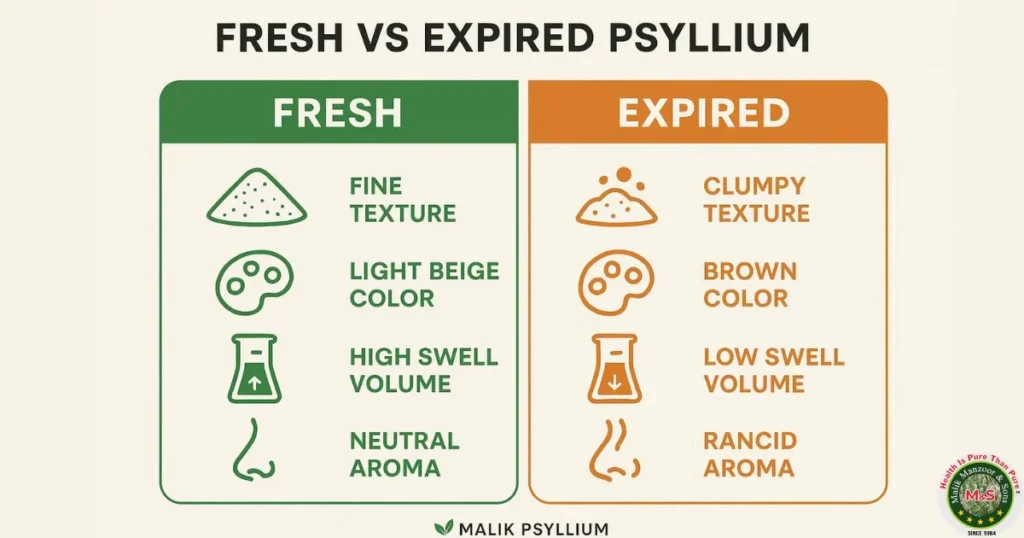
What Health Professionals Say about Expired Fiber Supplements
Healthcare providers generally take conservative stances on expired supplements including psyllium husk powder. Understanding professional perspectives helps contextualize risk assessment.
Most dietitians and nutritionists recommend discarding products beyond expiration dates, prioritizing guaranteed effectiveness over cost savings. They emphasize that supplements work only when taken at appropriate doses with adequate potency – expired products introduce uncertainty that may undermine health goals.
Gastroenterologists focusing on digestive health stress the importance of consistent fiber intake. Using expired psyllium husk powder with questionable effectiveness could disrupt digestive routines people have established for managing conditions like IBS, chronic constipation, or diverticulosis.
Pharmacists note that while fiber supplements like psyllium have wider safety margins than pharmaceuticals, the principle of using fresh, fully potent products applies universally. They point out that the cost difference between fresh and expired product is minimal compared to the value of predictable results.
Food safety experts emphasize storage conditions over expiration dates. They note that properly stored expired psyllium husk powder may be safer than recently purchased product stored poorly. The totality of handling matters more than dates alone.
Quality-focused manufacturers like Malik Psyllium recommend following expiration date guidelines while acknowledging that proper storage extends usability. Their guidance balances safety, effectiveness, and practicality based on extensive product knowledge.
Preventing Future Expiration Issues
Proactive approaches prevent finding yourself with expired psyllium husk powder in the future. These strategies ensure you always have fresh, effective product available.
Establish consistent usage routines that incorporate psyllium daily rather than sporadic consumption. Regular use prevents products from sitting idle until expiration. Set reminders or tie psyllium consumption to existing habits like morning coffee or evening routines.
Purchase sizes appropriate for consumption rates. Calculate monthly usage and buy accordingly. If one tablespoon daily is your routine, a container with 180 servings lasts six months – purchase accordingly rather than buying year-plus supplies.
Set calendar reminders to check expiration dates quarterly. This proactive approach catches products approaching expiration while still fresh, allowing time to increase usage or share with others.
Rotate stock carefully when purchasing new containers. Place new purchases behind existing stock and draw from front first. This simple first-in-first-out approach prevents neglecting older containers.
Pros and Cons of Using Expired Psyllium Husk Powder
Pros:
- Potential cost savings by avoiding waste
- Environmentally friendly by reducing discarded product
- May still provide adequate fiber supplementation
- Often remains safe when properly stored
- Useful for non-critical applications where effectiveness less crucial
Cons:
- Reduced effectiveness for health goals
- Possible safety concerns with contamination
- Unreliable results for baking applications
- Risk of using product with diminished potency
- Potential for adverse effects from degraded product
- Uncertainty about actual remaining quality
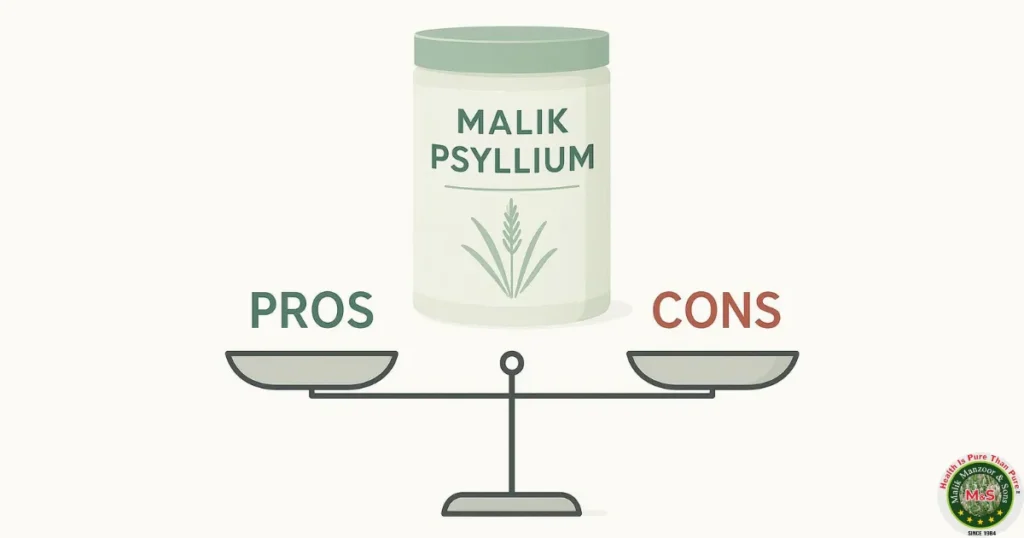
Is expired psyllium husk powder safe to consume?
Expired psyllium husk powder stored properly is usually safe for short periods past expiration, though effectiveness may decrease. Inspect carefully for signs of mold, unusual odors, or heavy clumping. Products showing any spoilage signs should be discarded immediately regardless of expiration date.
How long past the expiration date can I use psyllium husk powder?
Properly stored, unopened psyllium husk powder often remains usable 12-24 months past expiration. Opened containers typically last 6-12 months beyond dates if stored in airtight containers in cool, dry locations. Very old product beyond two years past expiration warrants replacement even with good storage.
Does expired psyllium husk powder lose its fiber content?
Expired psyllium husk powder retains most fiber content even past expiration dates, though gel-forming capacity may diminish slightly. The fiber itself remains relatively stable, but effectiveness for digestive health and baking applications may decrease 10-30% depending on storage and age.
What are the signs that psyllium husk powder has gone bad?
Key indicators include visible mold, unusual or rancid odors, extreme clumping that doesn’t break apart, discoloration or dark spots, and presence of insects or pests. Any of these signs mean immediate disposal is necessary regardless of how recently expired.
Can I use expired psyllium husk powder for baking?
You can attempt using expired psyllium husk powder for baking if it passes safety inspections, but results may be less reliable. Binding properties and moisture retention decrease with age, potentially affecting rise, texture, and structure of gluten-free baked goods. Test small batches first.
Should I refrigerate psyllium husk powder to extend shelf life?
Refrigeration isn’t necessary in most climates if stored in airtight containers in cool, dry pantries. However, in extremely humid environments, refrigeration can extend shelf life. Ensure containers are completely sealed to prevent condensation that would damage the powder.
Conclusion
Deciding what to do with expired psyllium husk powder requires balancing safety, effectiveness, and practical considerations. While properly stored expired psyllium husk powder often remains safe for consumption past printed dates, potency and reliability gradually decline. Careful inspection for signs of spoilage, realistic assessment of storage conditions, and consideration of intended use all factor into wise decision-making.
For most people, the modest cost of replacing expired psyllium husk powder with fresh product outweighs the uncertainty and potential effectiveness issues of using expired stock. The peace of mind and predictable results that come with fresh psyllium justify the investment in your health and wellness goals.
Malik Shabbir
Featured Blogs
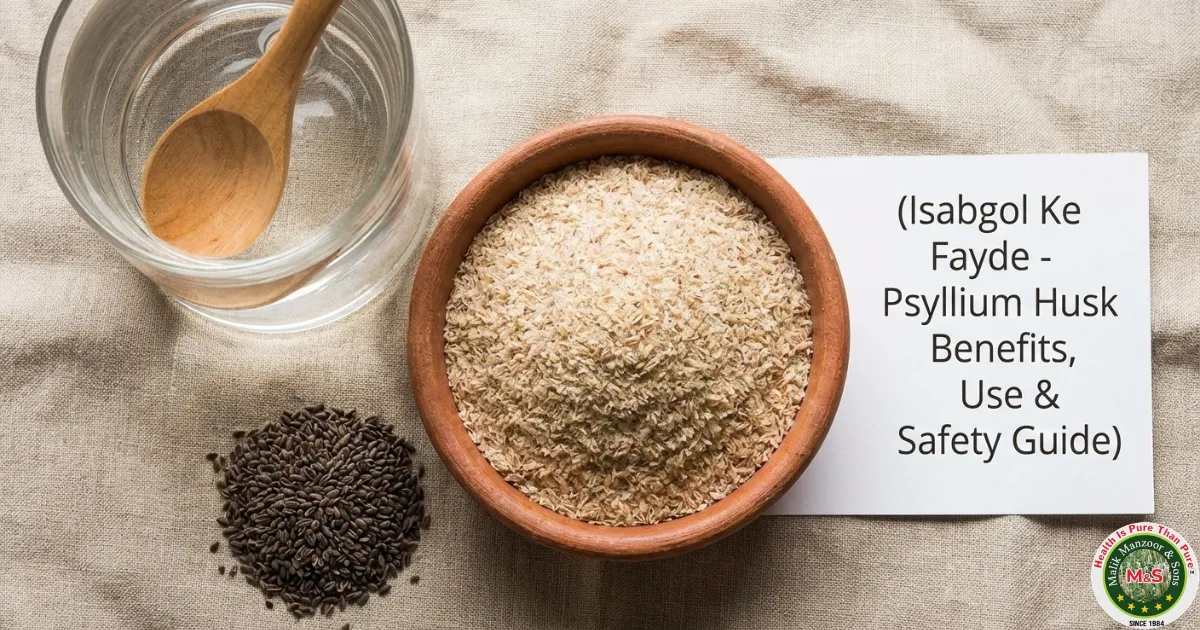
Isabgol Ke Fayde – Psyllium Husk Ke Poori Science-Based Rahnumayi – 2026
Isabgol ke fayde jaanna aaj ke daur mein zyada zaroori
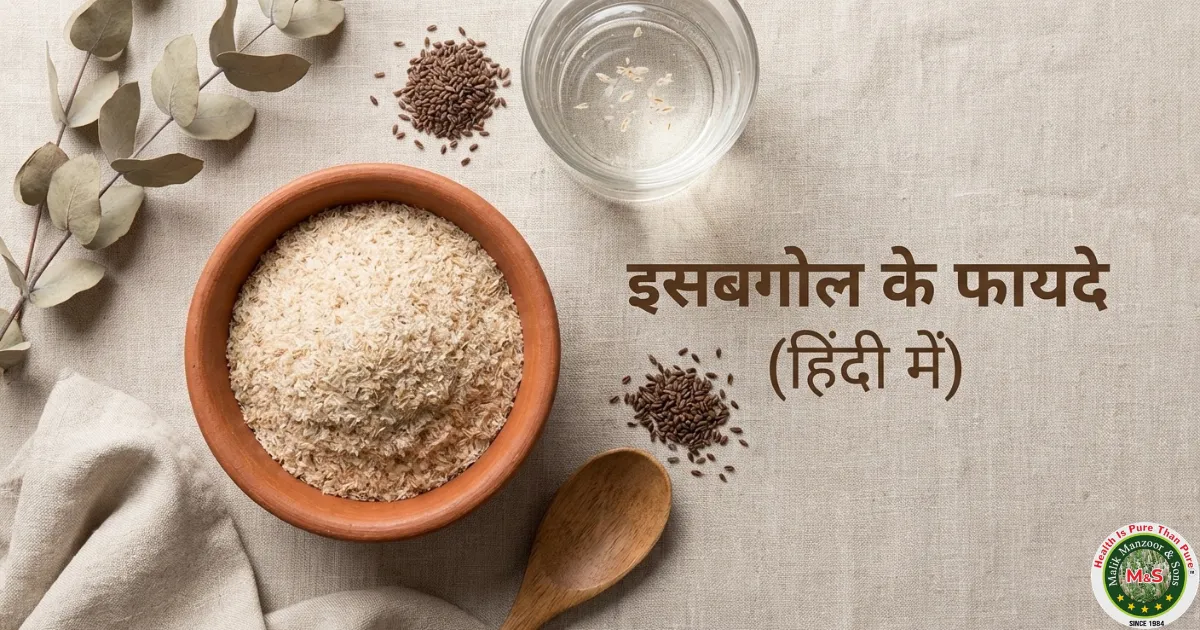
Isabgol Benefits in Hindi | Psyllium Husk Ke Fayde, Sahi Upyog Aur Savdhaniyan – 2026
Agar aap isabgol benefits in hindi mein samajhna chahte hain,
